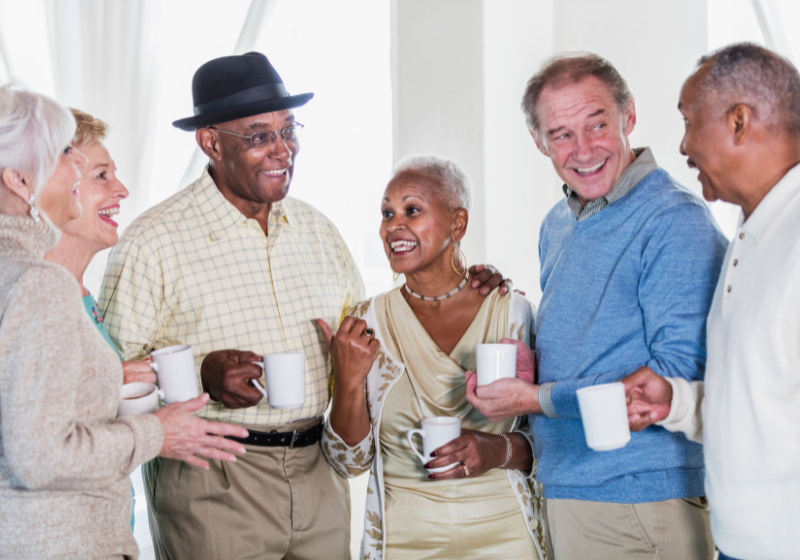Social engagement plays a critical role in a favorable aging process. It is a key step to maintaining psychological well-being. Staying connected with others minimizes the risk of retreat, isolation, loneliness, and depression. The Covid-19 epidemic definitely threw a wrench into the social activities of millions around the world, and was especially devastating for the older adult. There was a fear of contracting the Covid-19 virus and facing a long journey to recovery, under good circumstances, or worse under poor circumstances. So, recovering from this cultural and governmental admonition to stay isolated has been a double whammy for the older adult age group.
Science is telling us that staying connected with friends and family is an essential part of successful aging. For the centenarians in the Blue Zones, staying connected with one’s social network is one of the factors contributing to their longevity. Further, connection helps to keep our cognitive functioning at its best, offering mental stimulation, decision-making, and important cognitive processing abilities. Engagement reduces the possibility of depression, helplessness, and hopelessness. It acts as a protective factor against emotional isolation, and ideally promotes happiness and laughter.
Tips for Engagement
Here are suggestions for maintaining social engagement:
- staying connected with friends and family through whatever means necessary. This may be technology — emails, texting, group chats, online virtual meetings. It can include more traditional means, like phone calls, letters, or greeting cards. Social media platforms also offer a vibrant, and quick means of staying connected.
- visiting senior centers, with rich, community-minded activities and programs for seniors
- volunteering at local public-service organizations, such as libraries and trade fairs
- attending local community colleges for classes, whether pursuing a degree or not
- enrolling in local seminars and workshops on familiar and unfamiliar topics
All of these activities provide the benefits of socializing, mental stimulation, and having meaningful, purposeful activity in our daily routine.
This article is referenced in the new Living to 100 Club publication: Better, Longer, and Happier: A Guide to Aging with Purpose and Positivity.


